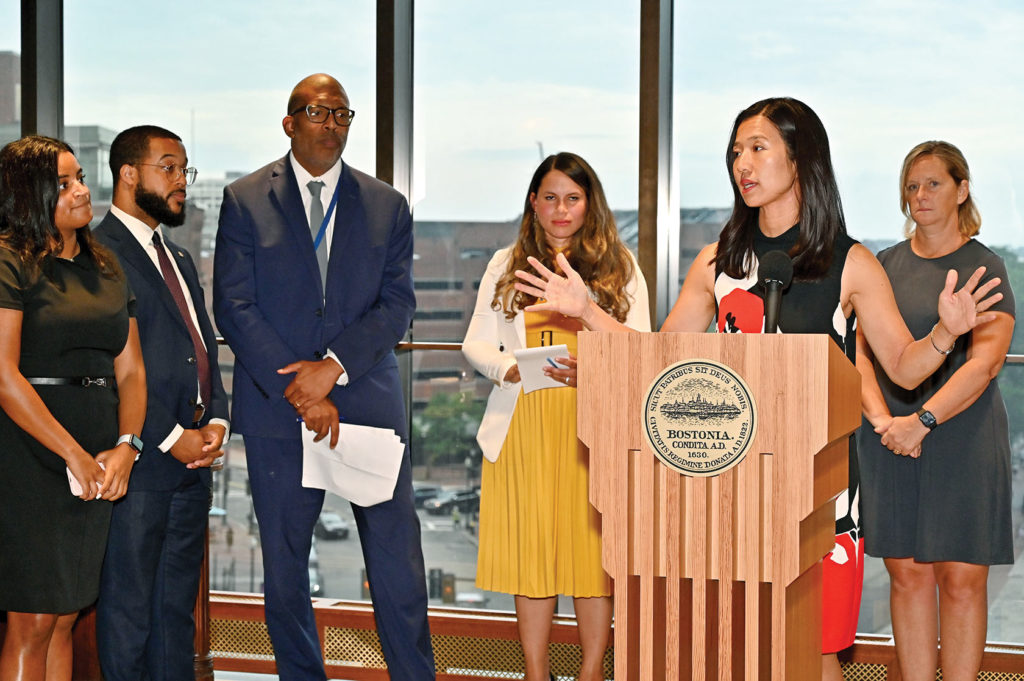Developers required to release diversity plans
City officials will better monitor compliance with jobs policy

Five years ago, city officials released guidelines for developers bidding on publicly-owned land that would award points for teams in which people of color have a significant ownership stake and those that use subcontractors who are people of color.
Last week, Mayor Michelle Wu announced new guidelines requiring developers of privately-owned land to report on their plans to hire people of color and subcontract with firms owned by people of color as part of the Boston Planning and Development Agency’s Article 80 development approval process.
“Our residents, developers and businesses all want the same thing: we want to see Boston thriving and growing sustainably, and connect opportunity to all of our residents, in particular our young people,” Wu said. “This new policy is about ensuring success is spread across our communities, while incentivizing sustainable growth and creating more transparent processes.”
The BPDA board voted in the new requirements last Thursday. The requirements apply to all development projects over 20,000 square feet. Because projects of that size are required to undergo Article 80 reviews before they receive the permits necessary to begin construction, the BPDA has the power to put the brakes on such projects if it deems a developer’s diversity and inclusion plan inadequate.
Once the plans are submitted, however, the BPDA would have little leverage to make sure developers comply with their own plans.
Wu said that adding the requirement to the development review process would help developers be more intentional about building more diverse teams and ensure the workforce on their projects is more representative of the diversity in the city.
Boston has had on the books for nearly 40 years a Boston Resident Jobs Policy ordinance that requires that at least 51% of total work hours go to city residents, 40% to people of color and 12% to women.
Over the decades, developers have consistently failed to meet those numbers as many building trades unions pull in white workers from Boston suburbs and Southern New Hampshire. In 2018, city officials reported that 28% of working hours went to Boston residents, 34% to people of color and 5% to women.
No representatives of the building trades were present at last week’s announcement.
Wu and others at the press conference last week said the new requirement would help the city and developers better evaluate which strategies for building inclusive workforces on projects work best.
“This proposed policy stands to empower the development community to highlight and promote innovative solutions to transform commercial real estate into an industry of opportunity and diversity,” said Colleen Fonseca, executive director of the Builders of Color Coalition.
The city’s Director of Planning, Arthur Jemison, expressed confidence that developers can increase their numbers by embracing best practices.
“I know the development community can do this,” he said. “They do it when they’re asked and I think I’ve just got the highest expectation that they’re going to innovate in this space the way that they have in so many others.”







